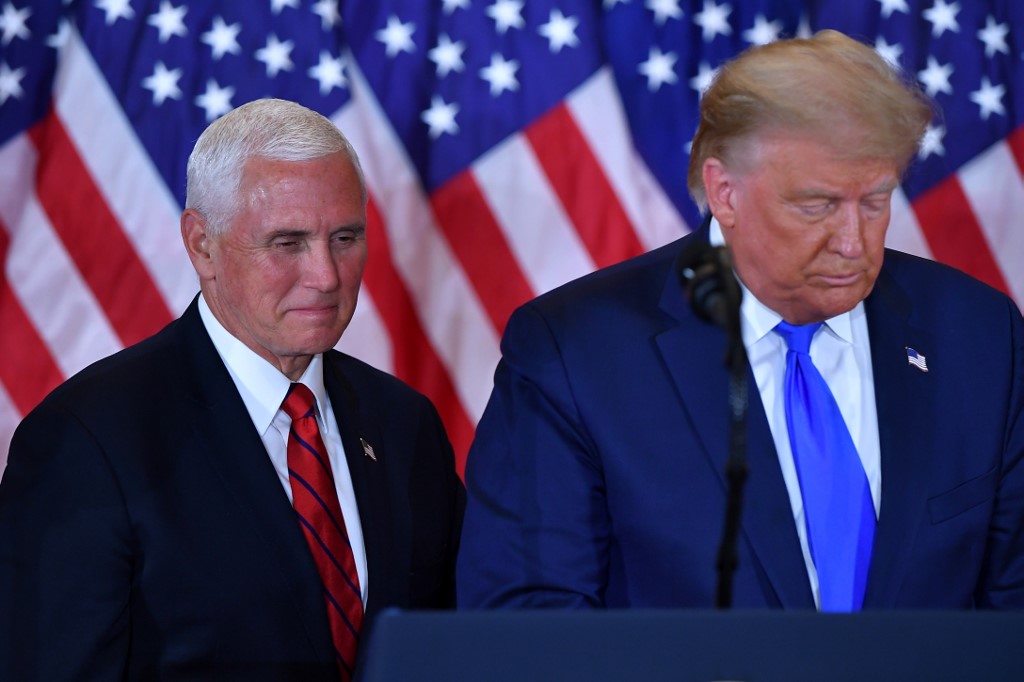
The House voted Wednesday to impeach President Donald Trump for the second time in a swift and bipartisan condemnation of the President's role inciting last week's riot at the US Capitol.
The House voted 232 to 197 to impeach Trump exactly one week after rioters forced lawmakers to flee from the very chamber in which they cast ballots in the fourth presidential impeachment in US history -- and the first time a President has been impeached twice. Ten Republicans, including the House's No. 3 Republican, Liz Cheney of Wyoming, joined all Democrats to impeach Trump for "incitement of insurrection."
While impeachment won't force Trump from office -- Senate Majority Leader Mitch McConnell has said Trump won't face his trial until after President-elect Joe Biden is sworn in next week -- the vote was a visceral response from lawmakers in both parties furious at Trump after a deadly pro-Trump mob overran Capitol Police, ransacked the US Capitol and put the lives of Vice President Mike Pence and lawmakers in danger last week.
"We know that the President of the United States incited this insurrection, this armed rebellion against our common country," House Speaker Nancy Pelosi said on the House floor ahead of the vote. "He must go. He is a clear and present danger to the nation that we all love."
The speed of the vote and the Republican support underscores the fury that lawmakers feel about Trump's role inciting the rioters who overtook the Capitol, who were fueled by Trump's months of false rhetoric about the election being stolen from him. Cheney's statement was cited by impeachment supporters and detractors alike Wednesday after she charged that Trump "summoned this mob, assembled the mob and lit the flame of this attack."
"There has never been a greater betrayal by a President of the United States of his office and his oath to the Constitution," Cheney said.
House Minority Leader Kevin McCarthy said Wednesday that Trump "bears responsibility for Wednesday's attack on Congress by mob rioters," urging the President to accept his share of responsibility and "quell the brewing unrest." McCarthy, however, argued the House should create a bipartisan commission instead of impeachment.
"I believe impeaching the President in such a short timeframe would be a mistake," McCarthy said. "No investigations have been completed. No hearings have been held."
The division within the Republican Party starkly contrasts the House Democrats' 2019 impeachment of Trump, when House Republicans were united in opposition. The Republicans besides Cheney voting to impeach Trump on Wednesday were Reps. John Katko of New York, Adam Kinzinger of Illinois, Fred Upton of Michigan, Jaime Herrera Beutler of Washington, Dan Newhouse of Washington, Peter Meijer of Michigan, Tom Rice of South Carolina, Anthony Gonzalez of Ohio and David Valadao of California.
Rice, a Republican from a conservative district who was not expected to vote for impeachment, said in a statement after the vote that it was the President's response to the riot that led him to cross the aisle.
"The President has not addressed the nation to ask for calm. He has not visited the injured and grieving. He has not offered condolences. Yesterday in a press briefing at the border, he said his comments were 'perfectly appropriate,'" Rice said.
In the Senate, McConnell is not planning to bring the Senate back for a trial before January 19, meaning the trial won't begin until Trump is out of office and Biden has been sworn in.
The majority leader said in a statement following the vote that a trial could not be completed ahead of Biden's inauguration even if it started beforehand, and he wanted Congress and the executive branch to spend the next week focused on "facilitating a safe inauguration and an orderly transfer of power."
In a note to his GOP colleagues Wednesday afternoon, McConnell wrote, "I have not made a final decision on how I will vote and I intend to listen to the legal arguments when they are presented to the Senate."
For House Democrats, the disagreements that divided their caucus on impeachment in 2019 simply never materialized. Democrats quickly coalesced around using impeachment in the final days of Trump's presidency to serve as a proper response to the President's conduct and as a way to push for his removal from office before the end of his term, although that scenario looks unlikely.
Pence sent a letter Tuesday saying he would not seek to invoke the 25th Amendment as Democrats had urged, and Trump is not considering resigning.
Pelosi has brushed aside Republican efforts to take a different action, such as censure, in response to Trump's role in the riot. She named impeachment managers on Tuesday evening, a team of nine Democrats who will be led by Rep. Jamie Raskin of Maryland, ahead of a likely trial not long after Biden is sworn in. House Majority Leader Steny Hoyer said late Tuesday the House would send the articles to the Senate immediately.
After the House vote, Trump released a video statement calling for calm as the threat of new riots -- which Trump said he'd been briefed on by the Secret Service -- casts a pall over Washington. But he did not mention the historic impeachment that had occurred a few hours earlier.
Trump has showed no contrition for his role in last week's Capitol riot, railing against impeachment on Tuesday in his first public remarks since the incident. A source close to the President said he's not considering resigning.
"It's been analyzed," Trump said of his remarks last week to the crowd before the riots. "People thought what I said was totally appropriate."
Kakvo je tvoje mišljenje o ovome?
Učestvuj u diskusiji ili pročitaj komentare





 Srbija
Srbija
 Hrvatska
Hrvatska
 Slovenija
Slovenija







